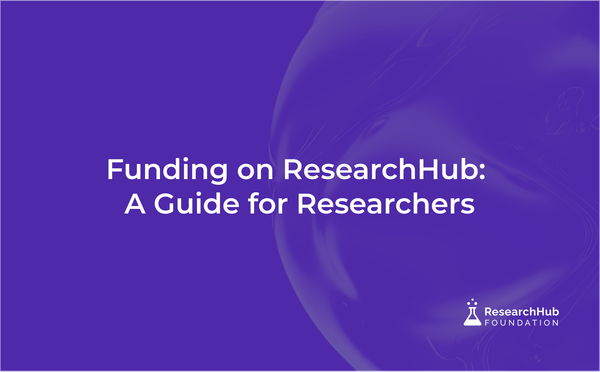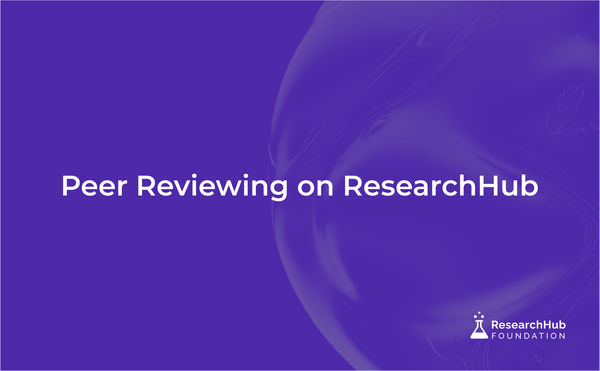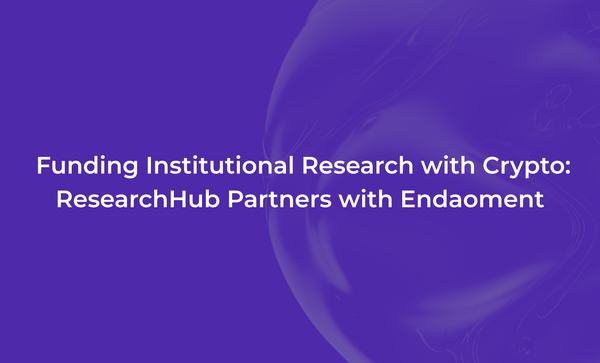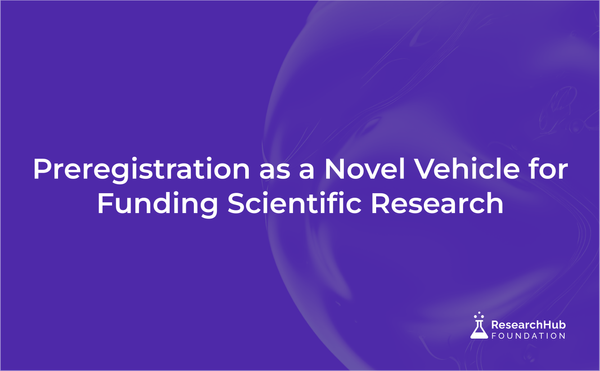Why Scientific Publication is Broken?
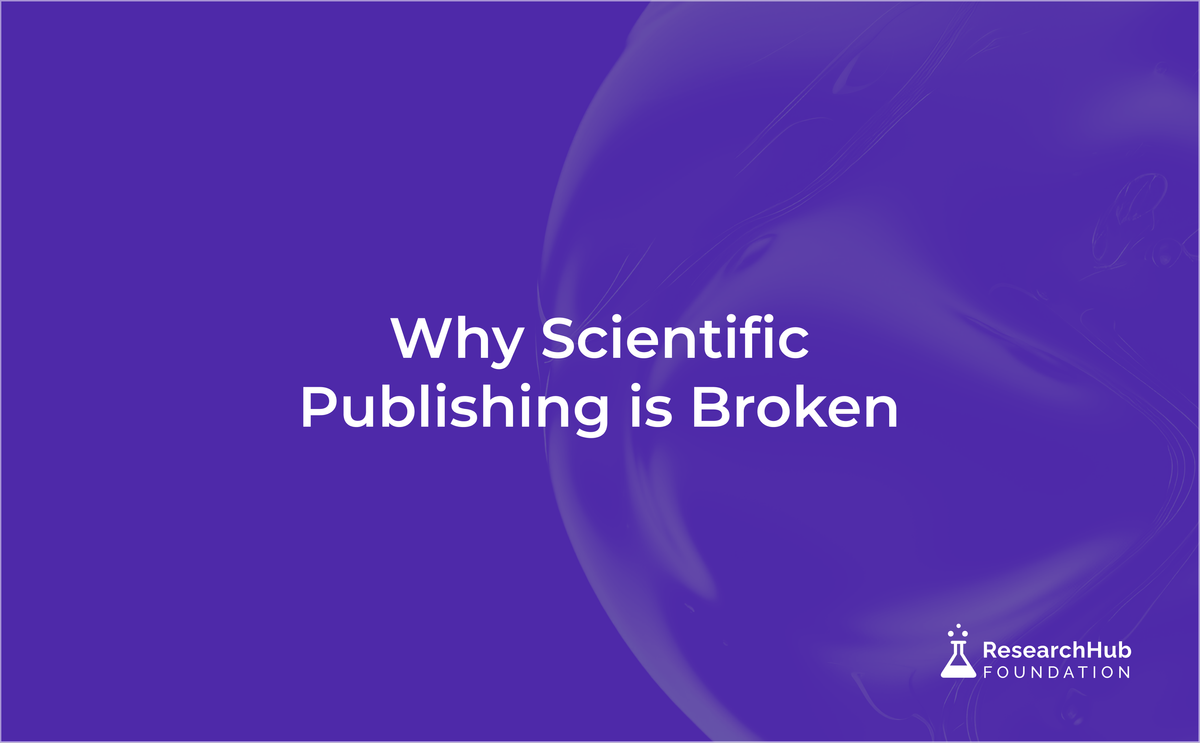
Scientific publication is in crisis. The system designed to validate and disseminate research is fraught with issues that undermine its integrity and effectiveness. In 2023 alone, over 10,000 research papers were retracted, highlighting the severity of the problem. These retractions often stem from issues like data falsification, plagiarism, and other forms of academic misconduct, highlighting the issues prevalent within today’s system.
Fortunately, a new generation of decentralized science (DeSci) platforms, led by ResearchHub, are addressing these systemic issues by offering more efficient ways to share and collaborate on new research. Let’s take a look at the most prevalent issues within the traditional scientific publication space, and how ResearchHub is designed to fix them.
Key Issues in Scientific Publication
The traditional scientific publication system is marred by several critical issues that hinder the effective dissemination and validation of research. Key issues include:
- Speed and Efficiency of Publication: The traditional publication process can be exceedingly slow, often taking months or even years from submission to publication. For instance, the scientific journal Science takes an average of 123 days to review and approve a new study, from original submission of a manuscript to its final acceptance. This delay hampers the timely dissemination of research findings and can be particularly detrimental in fast-moving fields like biomedical research.
- Expensive, Gated Access: Traditional scientific journals often operate on a pay-to-access model, locking valuable knowledge behind expensive paywalls, both for prospective publishers and the broader public. Journal subscriptions can cost individuals hundreds to thousands of dollars annually and millions for institutional access. Even publishing outside a paywall, via article processing charges (APCs), can reach up to $12,000 per article. This model disproportionately affects independent researchers and smaller institutions, perpetuating systemic inequalities in scientific research and access.
- A “Publish or Perish” Culture: The academic pressure to publish frequently to secure funding and career advancement has fostered a culture that prioritizes quantity over quality. This environment encourages the publication of incremental studies over groundbreaking research and can lead to unethical behaviors like data manipulation and rigged citations.
- Unreliable Peer Reviews: The peer review process, intended to ensure the quality and credibility of scientific research, is increasingly criticized for its opacity. Peer reviewers are often anonymous, which results in closed decision-making, limited discourse, and inconsistent standards – all of which affect the quality and fairness of research evaluations. The recent Elsevier journal incident, where 73 papers were flagged for unethical practices, highlights how such broken incentives can corrupt the integrity of the scientific publication process. And on top of that, peer reviewers are rarely compensated or otherwise rewarded for their peer reviews, which discourages knowledge-sharing and deeper forms of collaboration.
- Potential Conflicts of Interest: Institutions’ financial interests can skew research priorities and outcomes. Journals and publishers may prioritize studies that are more likely to generate revenue through citations and subscriptions, which can overshadow scientifically important but less commercially attractive research. This issue is exacerbated by the fact that editors and reviewers may have undisclosed financial ties to pharmaceutical companies or other industry players, which can influence their decisions on which studies to publish.
How ResearchHub Can Help
In response to the legacy issues outlined above, ResearchHub offers an alternative vision of how to accelerate and improve the way researchers publish and peer review new studies.
- Instant Publication & Peer Review: DeSci publication platforms can significantly speed up the publication process by allowing researchers to share their findings in real-time. This eliminates the lengthy delays associated with traditional journals. For example, ResearchHub facilitates rapid dissemination by allowing preprints to be posted immediately, which are then open for community review and feedback, accelerating the validation process.

- Diverse Research Incentives: DeSci platforms use token-based incentives to reward a broader range of contributions, including peer reviewing and data-sharing, that are crucial for scientific progress. This approach counters the "publish or perish" culture by valuing diverse scientific contributions and making it easier for anyone to pressure-test others’ work publicly and meritocratically. ResearchHub’s token system is a prime example of this, in that it rewards various scientific and community-driven activities, fostering a more collaborative and inclusive research environment.
- Open Collaboration: DeSci projects are opening up the review process to the broader scientific community, transforming opaque, one-way reviews into transparent, open dialogues. This subjects both publishers and peer reviewers to healthy scrutiny, ensuring they deliver high-quality, unbiased evaluations. By allowing the scientific community to observe and participate in the review process, projects like ResearchHub help foster a collaborative environment where feedback is constructive and accountable. This approach also accelerates the review process, as reviews and revisions can happen in real-time.
- Decentralized Funding: DeSci democratizes research funding crowdsourced resource allocation and governance mechanisms, allowing the scientific community to collectively decide on funding priorities. This helps reduce the influence of traditional funding bodies, aligning financial support with scientific merit rather than pure profitability. ResearchHub makes this all possible by allowing any user to create new project bounties to incentivize new research that aligns with their scientific interests, or help fund existing preregistrations. This ensures that funding decisions are transparent and reflect the community's values, fostering innovative research that might otherwise be overlooked.
A More Efficient and Equitable Way to Publish Research
The current scientific publication system is plagued by significant flaws that hinder the advancement of knowledge. Addressing these issues is crucial for advancing scientific knowledge and ensuring that research is conducted and shared more widely and effectively.
Fortunately, DeSci publication platforms like ResearchHub offer a growing menu of promising solutions. As these new models gain traction, they are increasingly paving the way for a more fast-moving, innovative scientific community.
Join ResearchHub Today.
Get In Touch
- Twitter :
- Website :
- Discord :


